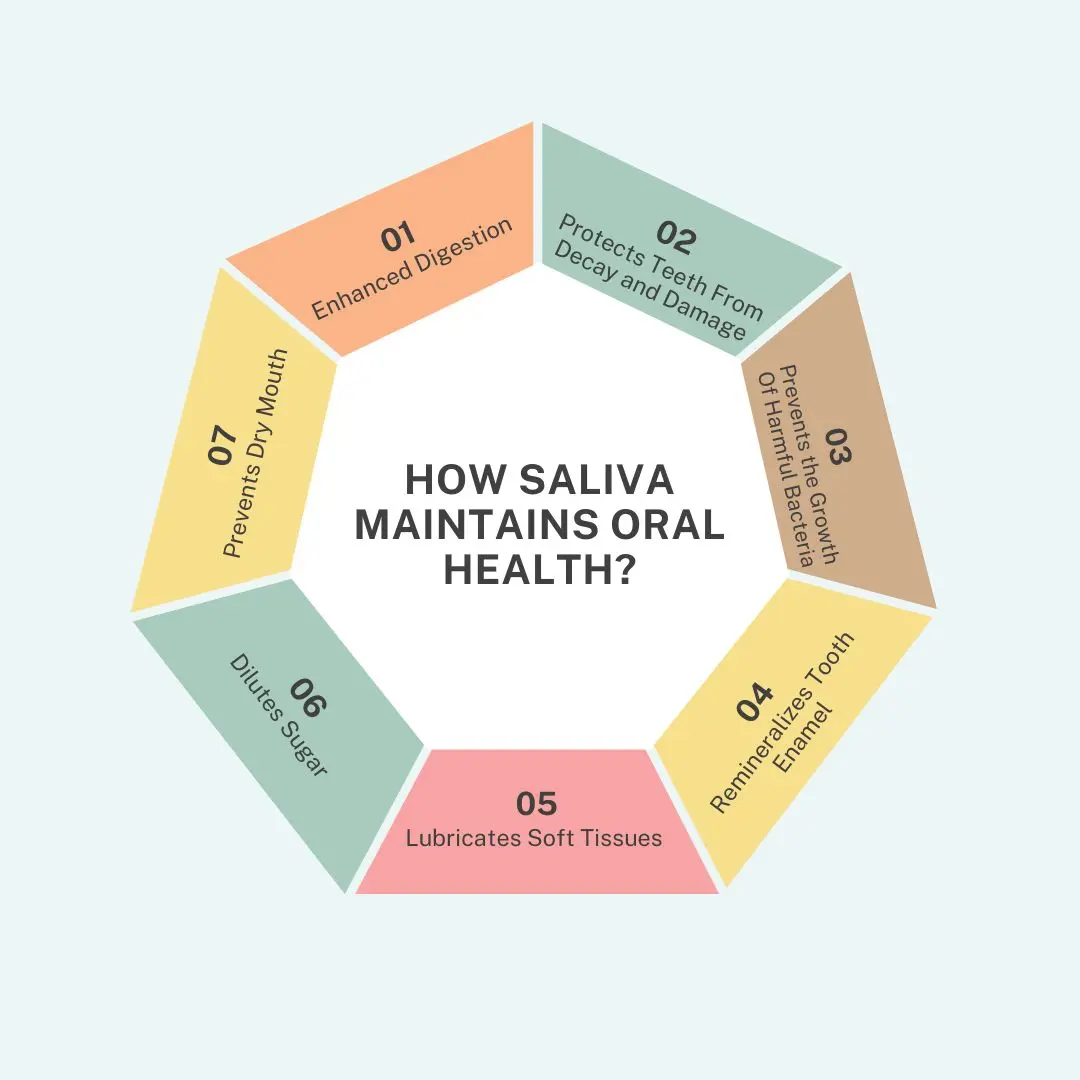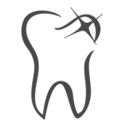
VISITING HOURS:
Week Days - 9 am to 8 pmSundays - Only Emergency Cases
The Role of Saliva in Oral Health
The salivary glands in our mouth produce saliva, which is primarily composed of water. However, this is not the only component; it also contains vital proteins and minerals that aid in tooth protection. Additionally, millions of bacteria are present. Some of these are what we typically refer to as “good bacteria,” which not only aid in the prevention of infections but also play a crucial role in the process of breaking down our food while we chew it, making it simpler for us to digest it.
It is well known that uncontrolled bacteria can cause gum diseases. Serious oral health issues like dental cavities and infections are more likely to arise when saliva levels are low. In this article, we discuss the role of saliva in oral health.
How Does Saliva Maintain Oral Health?

Saliva plays a crucial role in maintaining oral health in several ways:
1. Enhanced Digestion
Saliva, which is composed of approximately 99 percent water along with minerals, various proteins, mucus, electrolytes, and amylase, an enzyme that breaks down starches, is a necessary secretion for easing the digestion of food. Little organs located in different parts of the mouth deliver saliva, which is carried to the oral cavity through small ducts or passageways. The major sets of salivary glands are located below the mandible, on the sides of the mouth, and below the tongue. It is possible to stimulate these salivary glands to produce more saliva. Chewing or eating can increase saliva production, and thinking of food can also result in increased saliva production, which is often referred to as “mouth-watering.”
2. Protects Teeth from Decay and Damage
Having enough saliva provides better protection for your teeth against tooth decay, which is the most common cause of tooth damage. Bacterial acid is the root cause of tooth decay. The acid’s attack on the tooth enamel dissolves vital minerals. As we all know, alkaline substances have a higher pH. Saliva contains an alkaline compound called bicarbonate, which balances the pH of the oral cavity to reduce the damage caused by oral acids. Acids, on the other hand, have a low pH.
Read to know: Common Symptoms of Tooth Decay
3. Prevents the Growth Of Harmful Bacteria
Saliva plays a role in preventing germs in oral health by having antimicrobial properties. It breaks down the cell walls of some oral bacteria, which stops them from growing.
4. Remineralizes Tooth Enamel
Acids actively dissolve minerals such as calcium and phosphorus from tooth enamel to remineralize it. Saliva aids in the reassimilation of minerals with the teeth. The presence of fluoride actively expands the remineralization of the teeth by stepping the dislodged minerals back into the enamel.
Read to know: Tooth Erosion: Causes, Symptoms, and Treatment Options
5. Lubricates Soft Tissues
Saliva lubricates the soft tissues of the mouth to make them feel better. This lubrication remains constant in a healthy mouth due to the continuous production of small amounts of saliva.
6. Dilutes Sugar
Simple sugars are many oral bacteria’s primary source of energy. Saliva dilutes sugars, making them less accessible to oral microbes.
7. Prevents Dry Mouth
Preventing dry mouth is one of the important roles of saliva in oral health. A dry mouth is a condition that some people suffer from because they lack saliva. Radiation treatments and some medications are two more things that can cause dry mouth. Various issues might emerge from dry mouth. Some of them are as follows:
Infectious fungi: Histatin, an antifungal agent, is one component of saliva.
The disease of the gums: When saliva does not dilute oral acids, they can more easily irritate the gums.
Infections with bacteria: Without saliva’s antibacterial properties, bacteria can grow faster, leading to more oral infections.
Decay in the teeth: More damage to the enamel occurs when saliva does not contain bicarbonate to neutralize bacterial acids.
Issues with the stomach: Improper breakdown of meals and snacks may occur if the food is not properly moistened and amylase does not break down dietary starches. As a result, digestive issues might occur.
Mouth discomfort-Mouth discomfort, in general, There may be discomfort as the mouth’s soft tissues dry out.
Read to know more about Dry Mouth: Prevention and Treatment
Conclusion
Saliva plays a major role in maintaining oral health by providing lubrication, cleansing the mouth, neutralizing acids, helping digestion, protecting against infections, and promoting oral health.
OUR
TREATMENTS
TREATMENTS








